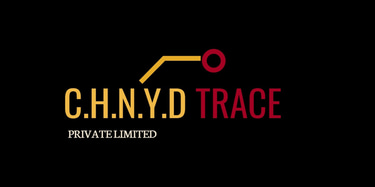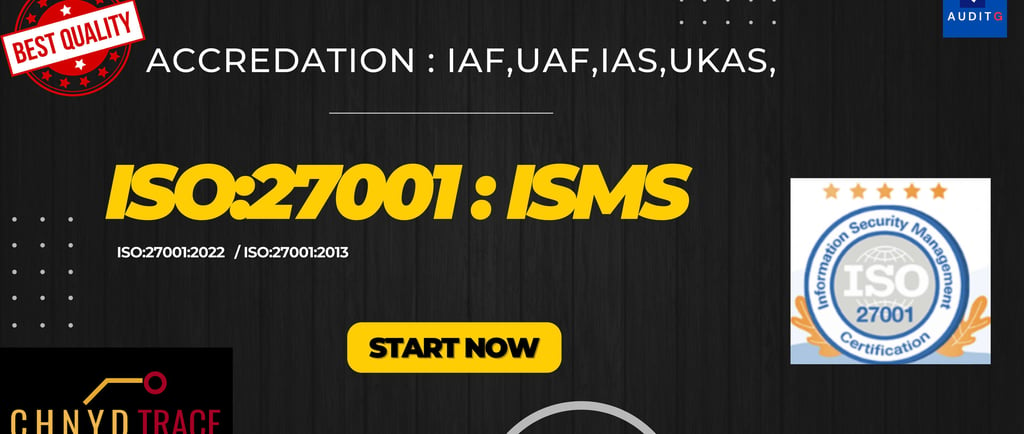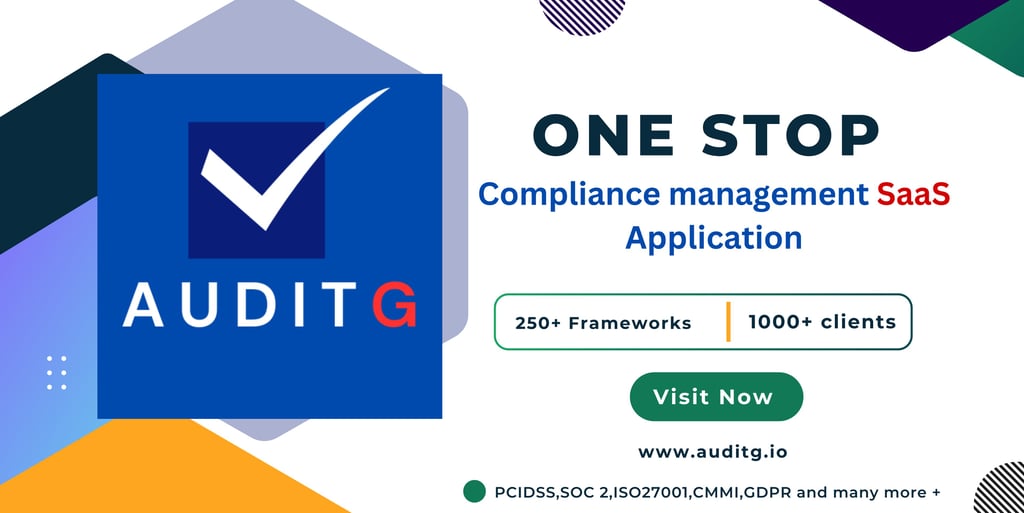iso 27001 audit checklist questions
iso 27001 audit checklist questions with use cases
11/23/20245 min read
Understanding ISO 27001 and Its Importance
ISO 27001 is an internationally recognized standard that outlines the requirements for establishing, implementing, maintaining, and continually improving an Information Security Management System (ISMS). The primary goal of this standard is to help organizations systematically manage their sensitive information so that it remains secure. One of the key principles underpinning ISO 27001 is risk management, which involves identifying potential threats to information security and taking steps to mitigate these risks effectively.
Adhering to ISO 27001 not only helps organizations implement an effective ISMS but also ensures compliance with various legal, regulatory, and contractual obligations related to information security. This compliance is crucial, as non-adherence can result in significant financial penalties, legal repercussions, and damage to an organization's reputation. By maintaining high security standards, organizations can cultivate trust with clients and stakeholders, which is fundamental in today's data-driven environment.
The importance of ISO 27001 extends beyond mere compliance; it establishes a robust framework for continual improvement in security practices. Organizations that adopt ISO 27001 benefit from ongoing assessment processes that help them adapt to evolving threats and vulnerabilities over time. Furthermore, this structured approach ensures that security measures are integrated into all aspects of the organization, promoting a culture of security awareness among employees.
Ignoring ISO 27001 standards can expose businesses to various risks, including data breaches, cyberattacks, and loss of sensitive information. Such incidents can disrupt operations, lead to the loss of customer trust, and incur substantial financial losses. Therefore, recognizing the importance of ISO 27001 is essential for organizations aiming to safeguard their information assets and maintain a competitive edge in a challenging digital landscape.
Key Audit Checklist Questions for ISO 27001
When preparing for an ISO 27001 audit, it is vital to address various areas to ensure compliance with the international standard for information security management systems (ISMS). Below are essential audit checklist questions categorized by focus areas, designed to evaluate an organization’s readiness for the ISO 27001 certification process.
Management Commitment: The involvement of top management is crucial within an ISMS. Auditors might ask, “How does top management demonstrate their commitment to the ISMS?” This question assesses whether leadership actively participates in the development, implementation, and continual improvement of the information security policies, reflecting a culture of security throughout the organization.
Asset Management: Effective asset management is a cornerstone of ISO 27001 compliance. A pertinent question here is, “How does the organization identify and classify its information assets?” This inquiry examines the processes in place for asset inventory and classification, evaluating whether the organization recognizes the importance of its assets and their role in maintaining confidentiality, integrity, and availability.
Human Resource Security: The human element is often the weakest link in security. Auditors may inquire, “What measures are taken to ensure that employees understand their information security responsibilities?” This question seeks to understand the training and awareness programs established within the organization, ensuring that all employees are knowledgeable about their roles and the impact of their actions on the ISMS.
Incident Management: An effective incident management process is essential for responding to and learning from security breaches. A key question in this area could be, “What procedures are in place for reporting and managing security incidents?” This assesses the organization’s readiness to handle incidents, from detection to response, including how lessons learned are integrated into their ongoing security strategy.
By systematically addressing these questions, organizations can create a comprehensive understanding of their readiness for ISO 27001 certification, enabling them to mitigate risks effectively and improve their overall security posture.
Use Cases: Practical Applications of the Audit Questions
Organizations across various industries have employed the ISO 27001 audit checklist questions to improve their information security management systems (ISMS). A notable use case involves a healthcare provider that faced stringent regulatory requirements for patient data protection. During their ISO 27001 audit, the auditors asked questions related to access control policies and data encryption measures. The healthcare provider was able to identify vulnerabilities in their data handling processes, leading to the implementation of more robust access controls. As a result, they enhanced data security and ensured compliance with regulations such as HIPAA.
Another example can be found in the financial sector, where a bank was undergoing an ISO 27001 audit to strengthen its cyber resilience. The audit checklist included questions about incident management and risk assessment protocols. The bank discovered gaps in its incident response procedures and realized that its risk assessment was not updated with current cyber threat intelligence. By applying the relevant questions, the bank developed a comprehensive incident management plan and revised its risk assessment process, which substantially improved its ability to navigate potential cyber incidents.
Similarly, a technology startup utilized the ISO 27001 audit checklist to assess its information security posture as part of its growth strategy. The audit questions prompted the startup to examine its policies regarding third-party risk management, which had previously been overlooked. The result was the establishment of a vendor risk assessment framework that now actively evaluates the security measures of all third-party providers. This proactive approach not only mitigated security risks but also instilled greater confidence in their clients regarding data security.
These examples illustrate the varied applications of the ISO 27001 audit checklist questions across different industries, showcasing their effectiveness in addressing real-world challenges. The alignment of audit questions with organizational needs is crucial for enhancing the overall security framework and achieving compliance with ISO 27001 standards.
Preparing for an ISO 27001 Audit: Best Practices
Preparing for an ISO 27001 audit requires a strategic approach that encompasses comprehensive planning, thorough documentation, and effective employee training. Organizations aiming for ISO 27001 certification should start by familiarizing themselves with the audit checklist questions. This foundational tool acts as a guide to understand the scope of the audit and highlights the critical areas where compliance is required.
Documentation is a vital component of the preparation process. Organizations should ensure that all pertinent information related to their Information Security Management System (ISMS) is documented meticulously. This includes security policies, risk assessments, incident management processes, and employee roles and responsibilities. Keeping this documentation clear and up-to-date aids not only in meeting ISO 27001 requirements but also contributes to smoother audits as it provides auditors with a clear view of established protocols and practices.
Employee training is equally crucial. All staff members should be educated about their roles within the ISMS and the overall importance of information security. Conducting regular training sessions and simulations helps to cultivate a security-focused culture within the organization. Ensuring employees are well-versed in potential threats and the organization's response mechanisms will empower them to contribute actively to maintaining compliance and security.
Internal reviews play a significant role in preparing for the audit. Organizations should conduct self-assessments using the ISO 27001 audit checklist questions to identify weaknesses and areas for improvement prior to the actual audit. This proactive approach allows organizations to address gaps in their security measures and to implement the necessary changes, thereby enhancing their overall security posture.
Post-audit, organizations should embrace continuous improvement practices to ensure ongoing compliance. Regular monitoring and reviewing of policies, coupled with timely updates in response to emerging threats, not only maintain compliance but also solidify the organization's commitment to information security.








